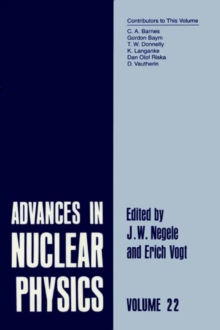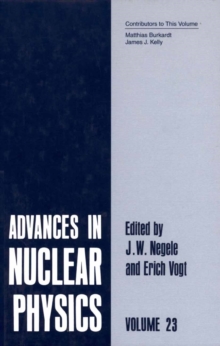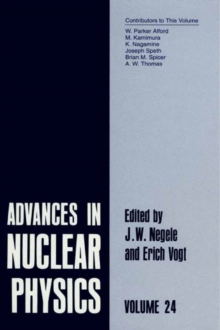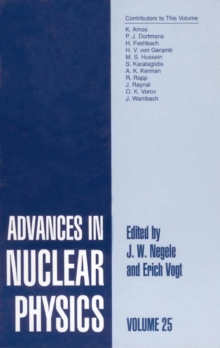
Advances in Nuclear Physics : Volume 26 PDF
Edited by J.W. Negele, Erich W. Vogt
Part of the Advances in Nuclear Physics series
Description
The four articles of the present volume address very different topics in nuclear physics and, indeed, encompass experiments at very different kinds of exp- imental facilities.
The range of interest of the articles extends from the nature of the substructure of the nucleon and the deuteron to the general properties of the nucleus, including its phase transitions and its rich and unexpected quantal properties.
The first article by Fillipone and Ji reviews the present experimental and theoretical situation pertaining to our knowledge of the origin of the spin of the nucleon.
Until about 20 years ago the half-integral spin of the neutron and p- ton was regarded as their intrinsic property as Dirac particles which were the basic building blocks of atomic nuclei.
Then, with the advent of the Standard Model and of quarks as the basic building blocks, the substructure of the - cleon became the subject of intense interest.
Initial nonrelativistic quark m- els assigned the origin of nucleon spin to the fundamental half-integral spin of its three constituent quarks, leaving no room for contributions to the spin from the gluons associated with the interacting quarks or from the orbital angular momentum of either gluons or quarks.
That naive understanding was shaken, about fifteen years ago, by experiments involving deep-inelastic scattering of electrons or muons from nucleons.
Information
-
Download - Immediately Available
- Format:PDF
- Publisher:Springer US
- Publication Date:18/04/2006
- Category:
- ISBN:9780306479151
Information
-
Download - Immediately Available
- Format:PDF
- Publisher:Springer US
- Publication Date:18/04/2006
- Category:
- ISBN:9780306479151










